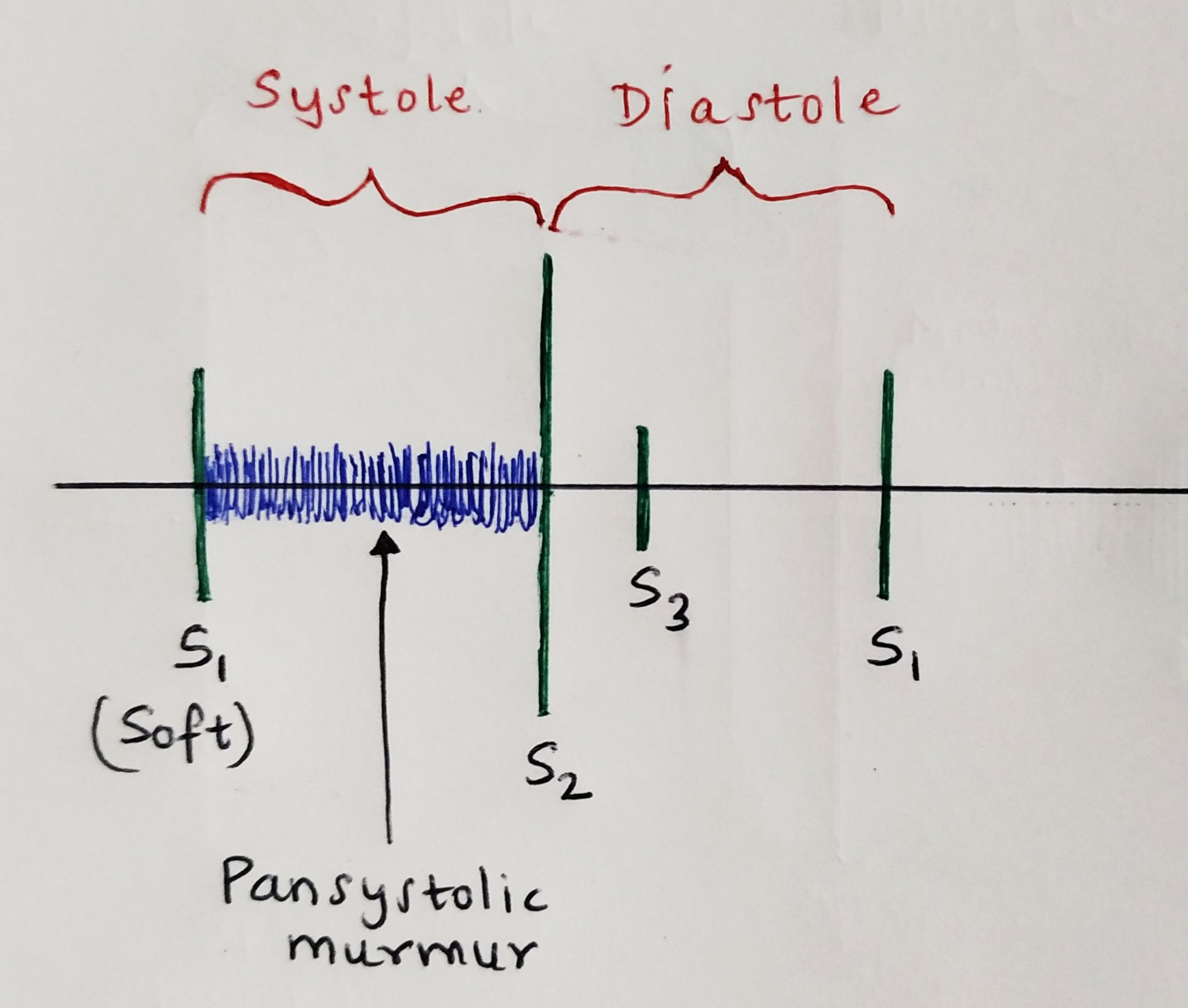In MR, the mitral valves are incompetent.
Hence, during ventricular contraction, some blood flows from the left ventricle into the left atrium. Under normal conditions, all the blood from the left ventricle enters into the aorta.
Causes of MR
Rheumatic
Congenital
Collagen vascular diseases
Mitral valve prolapse
Ischemic heart disease
Bacterial endocarditis
Symptoms
Exertional breathlessness
PND
Orthopnoea
Palpitations (because of LVH and Atrial fibrillation)
Fatigue
Signs
Propped up decubitus
Tachycardia
Low Blood pressure
Apex: Hyperdynamic, may be shifted outward and downward because of LVH.
S1:Soft
Murmur: High-pitched, soft blowing pansystolic (throughout systole) and holosystolic (same intensity) murmur best heard with
the diaphragm of stethoscope, in left lateral position and at the height of expiration. The murmur is radiated towards the left axilla and inferior angle of left scapula (hallmark of diagnosis)

Left parasternal heave and epigastric pulsations are present in RVH.
Diastolic shock (palpable P2) is present in pulmonary hypertension in the pulmonary area.
If LVF is present,
- S3 is heard (called triple gallop rhythm- S1, S2, S3)
- Fine crepitations are heard at lung bases
- Pulsus alternans
If RVF is present,
- Jugular venous pressure is raised
- Tender hepatomegaly is present
- Bipedal edema is seen
Complications
Acute LVF
Congestive cardiac failure
Atrial fibrillation
Embolic episodes
Giant left atrium (may lead to hoarseness and dysphagia)
Infective endocarditis
Recurrent respiratory infections
Investigations
1.Chest X-ray: LVH, LAH, RVH
2.ECG: features of
LVH
LAH (Wide notched P wave called P mitrale)
Atrial fibrillation (f waves)
3.Echocardiography: shows giant left atrium
4.Barium filled esophagus shows curved oesophagus as it is pushed because of the enlarged left atrium.
5.Doppler study
6.Cardiac catheterisation
Treatment
1.CCF: restriction of physical activity, salt restriction, diuretics, digoxin
2.Atrial fibrillation: Anticoagulation
3.Penicillin Prophylaxis for infective endocarditis
4.Vasodilatators: Nitrates and ACE inhibitors to reduce the regurgitant flow.
5.Mitral valve replacement
6.Valvuloplasty
7.Mitral annuloplasty
Other similar posts:
